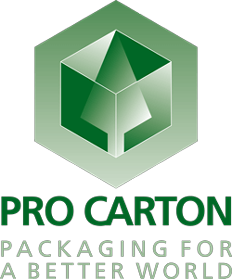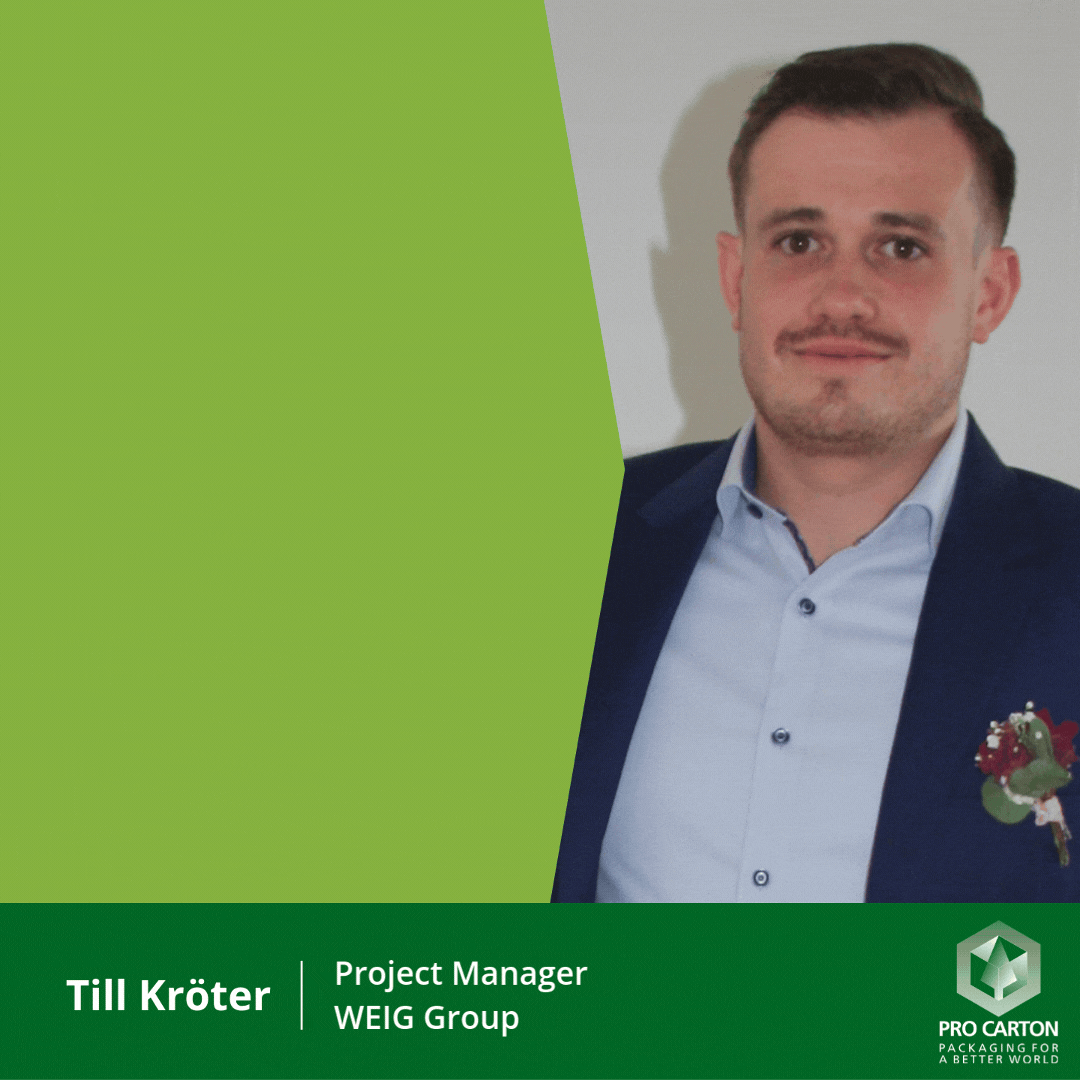Background and Introduction
Can you briefly introduce yourself and your current role in the carton and cartonboard industry?
My name is Till Kröter, and I am 33 years old. I work as a Project Manager and Deputy Head of Project Planning in the paper and cartonboard industry. I’ve been in this field for 16 years, and my role involves overseeing operational and strategic project management, starting from the initial target planning stage right through to the commissioning of projects.
How did you develop an interest in this field, and what led you to your current career path?
My journey into the cartonboard industry began with my training as an industrial mechanic. During this time, I discovered the fascinating and diverse aspects of the field. The industry stood out as particularly varied throughout my apprenticeship. I was especially captivated by the impressive scale of cartonboard machines, as well as auxiliary facilities like power plants and wastewater treatment plants. This is a field where every technician can find a fitting role, with plenty of variety to keep the daily work engaging.
Your Career Path
Can you describe the key milestones and experiences that have shaped your career in this industry?
After completing my apprenticeship as an industrial mechanic in maintenance from 2008 to 2012, I pursued a degree in mechanical engineering, which I completed in 2016. Following that, I made the unconventional move of transitioning into production as a process engineer. This shift was significant because it marked a change in focus from technical aspects to process engineering. It was during this time that I learned to bridge the gap between engineering and production—a critical skill as, at times, paper production specialists have their own unique “language.” Understanding different perspectives and viewing challenges through multiple lenses proved incredibly valuable.
After three years in production, I shifted back to a more technical role, joining the project planning department. Here, I could fully apply my mechanical engineering expertise. Working in this industry allows me to utilise a broad range of skills, from fluid mechanics in stock preparation to pump dimensioning and thermodynamic calculations in the power plant and steam systems. The breadth of technical knowledge required in this field is truly unique.
Having successfully led several projects, I took on the role of Deputy Head of Project Planning in 2022. This position not only allowed me to further develop my technical expertise but also to grow in leadership. I assumed responsibilities like financial planning and budgeting, which led me to pursue further education by enrolling in an MBA programme to deepen my business knowledge.
Were there any particular challenges or turning points that stand out in your professional journey?
A particularly defining moment in my career was during the Covid-19 pandemic, when I was entrusted with leading the pandemic management team for the WEIG Group. This period was an entirely new challenge, with no ready-made solutions and rapidly changing legal requirements. The pace was relentless, as we worked to implement measures and maintain production operations. This experience taught me how to handle ambiguous situations and reconcile conflicting instructions. It was a trial by fire that significantly shaped my approach to leadership and problem-solving.
Daily Work and Responsibilities
What does a typical day or week in your current role look like?
There really is no such thing as a “typical” day or week in my role, as it all depends on the specific phase of the project we are working on. At the beginning of a project, much of the work involves defining the scope, conducting feasibility studies, and preparing budget estimates. These are then reviewed and agreed upon with stakeholders and steering committees. During this phase, most of my work takes place in the office.
Once a project is defined, we move on to basic engineering and, if necessary, approval planning. This stage also involves assembling the project team. Often, this requires site visits for surveys and coordination with approval authorities, which I prepare and lead. During the implementation phase, I oversee adherence to timelines, quality standards, and budgets, while also supervising the construction site. The balance shifts here, with much more time spent on-site.
Finally, commissioning the plant is a crucial part of my responsibilities as a project manager. I particularly enjoy the variety this role offers—from desk work to being present on-site and collaborating with the project team.
Are there any specific projects or initiatives you’ve been involved in recently that you find particularly exciting or innovative?
I find strategic projects that impact the entire site to be the most exciting. Working on a historically developed site brings with it a wealth of complexity, which makes the work both challenging and highly engaging.
Industry Impact
How do you believe your work contributes to the sustainable and environmentally friendly aspects of cartonboard packaging?
The energy-intensive nature of the cartonboard industry means that decisions made during the planning phase can have a significant impact on future energy requirements. By selecting energy-efficient equipment, optimising pump systems, and minimising flow losses in pipelines, I can directly contribute to reducing energy consumption and making production more environmentally friendly. I also have the opportunity to promote and implement new technologies, ensuring that the facilities I work on are brought up to the latest technical standards.
What trends or developments in the industry excite you the most, and how do they influence your work?
The increasing scarcity of water and the need to reduce fresh water usage in the paper and cartonboard industry represent some of the biggest challenges we face today. Environmental projects, such as closing water cycles or improving wastewater treatment facilities, are critical. I was fortunate to contribute to one such project: constructing a new secondary clarifier. By working with the project team, we were able to improve the quality of wastewater discharge into the receiving waters, which was a significant achievement.
Advice and Inspiration
What advice do you have for individuals considering a career in the carton and cartonboard industry?
My advice would be not to take everything too seriously and to embrace stepping into unfamiliar territory. Exploring new fields is exciting and always brings valuable insights.
Are there any personal or professional accomplishments that you are especially proud of?
I am particularly proud of my continuous professional growth within the company and the opportunities I’ve had to take on new challenges.
What is the one reason why you are proud to work in the carton and cartonboard industry?
Unlike many other industries, we can recycle our products 100%. By using 100% recycled paper as raw material, we create a new, high-quality product after processing and production, which can then re-enter the cycle as raw material after use. To me, this is the essence of sustainability and the circular economy.




